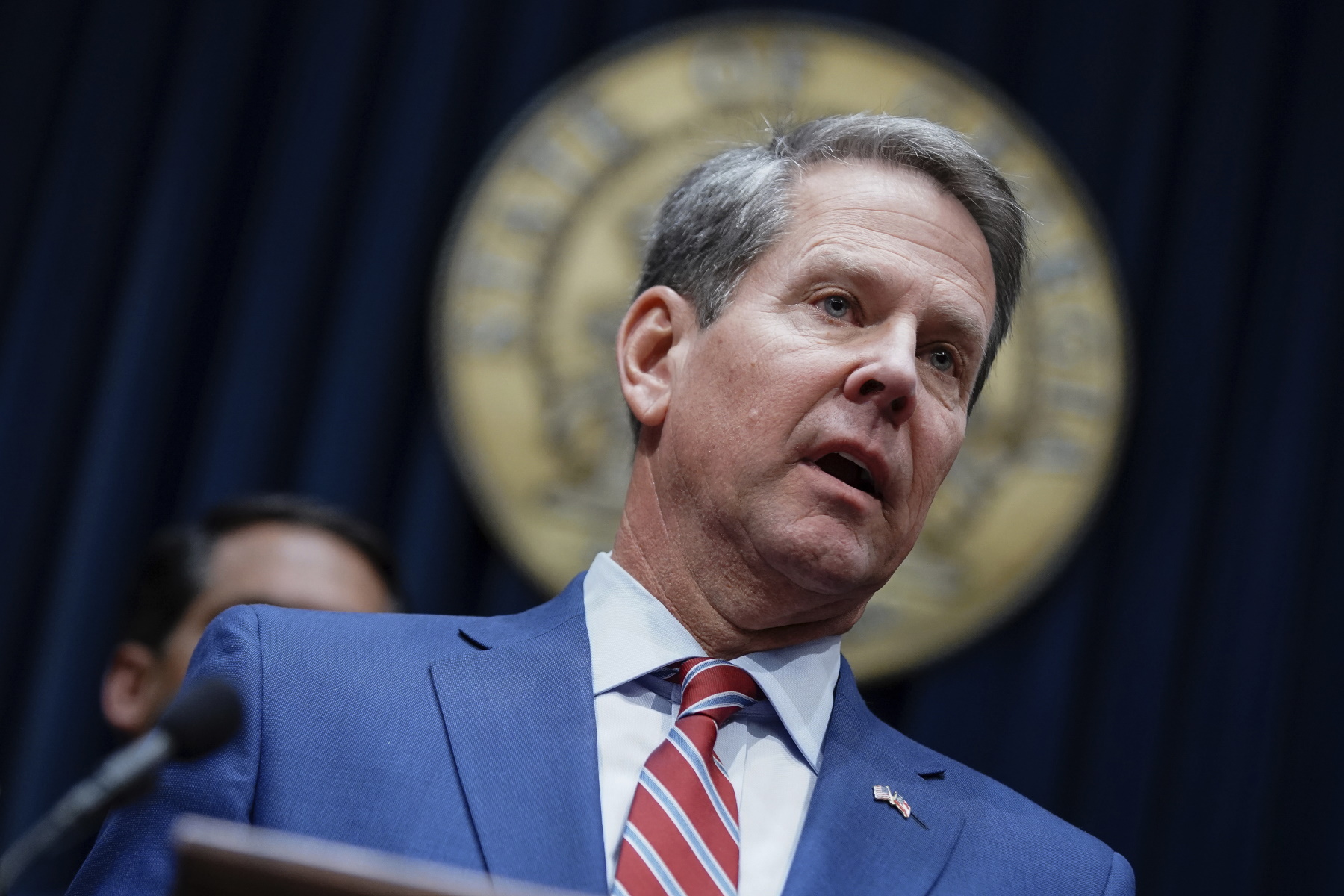Gov. Brian Kemp now has unprecedented power for a Georgia governor.
On Monday, the Legislature ratified the first-ever state of public health emergency, and his new jurisdictions have temporarily shifted the checks and balances of state government.
“Typically, our government is set up to have a deliberative process in the Legislature before making new laws. And that’s slow and messy and contentious by design,” said Kyle Wingfield, president and CEO of the conservative think tank the Georgia Public Policy Foundation.
“And so the theory is in an emergency, ain’t nobody got time for that. We’ve got to move, make decisions and implement them.”
There’s little dispute about the need for this state of emergency; it passed both chambers with just one dissenting vote.
But in hours of negotiating on Monday, state lawmakers pushed back on Kemp’s original proposal, which would have allowed him to unilaterally renew the state of emergency in mid-April. Some state lawmakers wanted to have a say in that renewal.
“You know it’s important to all of us in here that we maintain the equal levels of power that our government is based upon,” said Senate Majority Leader Mike Dugan on the Senate floor Monday.
The General Assembly and the governor’s office agreed on a compromise: the Legislature will have to reconvene to confirm the renewal unless they aren’t physically able to meet — for example, if the virus gets too bad for members to gather.
And that pushback was important, said ACLU of Georgia Executive Director Andrea Young.
“I think the [House] speaker and the General Assembly, in setting a limitation on these powers, have gone a long way in providing some avenues for oversight.”
“This resolution does not disrupt any of the balance of power,” said Republican state Rep. Trey Kelley of the compromise Monday. “[It] still maintains the governor’s authority while also the strong influence that this House plays as well in that process.”
“Anytime you delegate power like this, you want to make sure you can rein it back in if need be,” Wingfield said.
He pointed out the debate was a departure from something he’s been concerned about for years, at the state and federal level: the legislative branch ceding powers to the executive branch.
“Maybe this is an opportunity to rethink that even in normal times, in the more mundane types of situations we see,” he added.
With the new powers, Kemp is now able to do things like seize private property for the response, mandate quarantines and mandate vaccinations. Young pointed out that there is the opportunity for judicial review on the latter two points built into the code.
Kemp’s reluctance to this point to order more statewide sweeping restrictions like curfews and business closures is noteworthy, Wingfield said.
“That gives you some confidence that these powers won’t be abused. But obviously, you want to see some vigilance, not just within his office, but outside to make sure that doesn’t happen over time.”
This brings up another check on the governor in this state of emergency: the media and the public.
“Protecting access to the press is also a big part of how we do this because the trust of the public is critical in how effective a response can be to try to get ahead of this crisis,” Young said.
“If it comes to, ‘We’re going to order every citizen of Georgia to line up and get this needle put in their arm,’… even if the Legislature has delegated that authority to the governor, it doesn’t mean it comes without scrutiny,” Wingfield agreed.
“It doesn’t mean it comes without evaluation, by the courts of course, but also in the court of public opinion.”
“I know how important transparency is in a time like this, and I will continue to operate with transparency,” Kemp said in a release announcing the state of emergency.
“As this situation evolves, we will take appropriate action at the right time with the right resources. I am asking for God’s wisdom every hour.”









